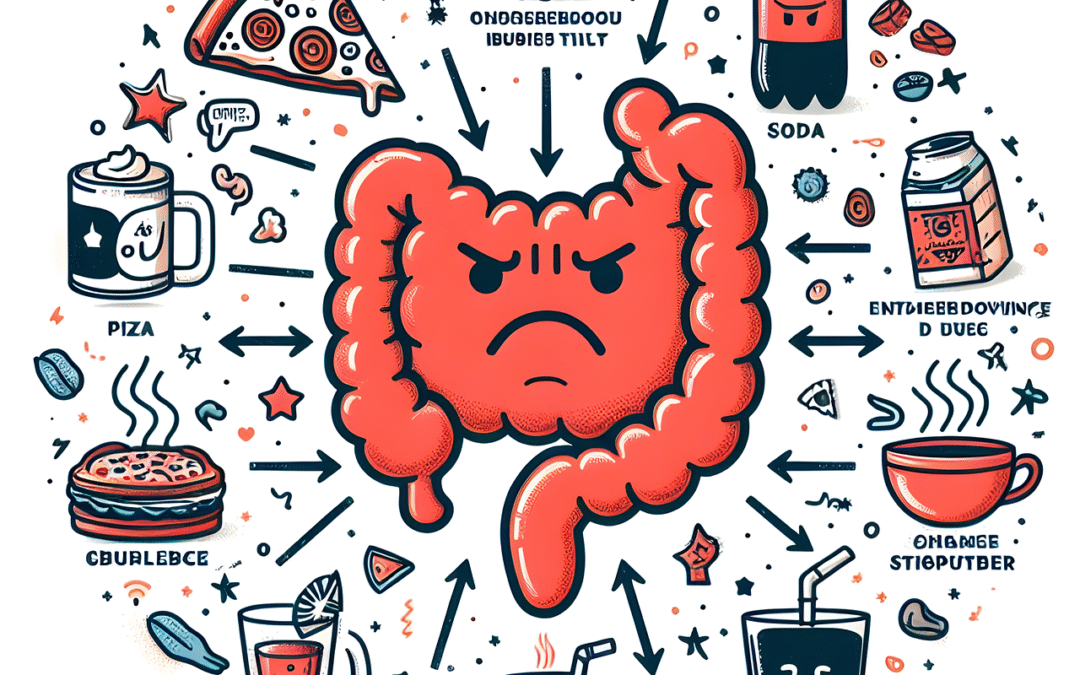How Carbs and Sugars Feed Gut Bacteria, Fungus, and Parasites — and What That Means for Your Health
When people think about sugar, they usually think about weight or energy crashes—but sugar and simple carbohydrates also have a direct impact on what’s living inside your gut. The balance of microbes (bacteria, yeast, and even parasites) in your digestive tract determines everything from immunity to mood. Feed the wrong ones, and you’re feeding inflammation, fatigue, and brain fog.
Let’s break down how this works, why it matters, and what you can do to rebalance your gut.
1. Sugar Is Microbial Fuel
Every microorganism in your gut—whether friendly or harmful—uses carbohydrates for energy and as a source of carbon to build their own cells.
-
Simple sugars (like glucose, fructose, and sucrose) are rapidly absorbed in the small intestine. But when you consume more than your body can process, that leftover sugar becomes a buffet for opportunistic microbes in the colon.
-
Complex carbohydrates (like those from vegetables, legumes, and whole grains) take longer to break down. They’re fermented by beneficial bacteria that produce short-chain fatty acids (SCFAs) such as butyrate, which soothe inflammation and strengthen the gut lining.
When you eat a diet dominated by processed carbs, sodas, or sweets, you’re literally tipping the microbial scales toward the wrong crowd.
2. How the Wrong Carbs Feed the Wrong Microbes
In a healthy gut, beneficial bacteria like Bacteroides and Firmicutes ferment fiber and keep yeast, mold, and parasites in check. But when sugar intake spikes, several things happen:
-
Overgrowth of harmful bacteria: Excess simple sugars promote the expansion of Proteobacteria—a group linked to inflammation, bloating, and even metabolic disease.
-
Fungal overgrowth: Candida species thrive on glucose and fructose. High sugar intake can transform them from a harmless yeast into invasive forms that produce toxins and disrupt gut integrity.
-
Parasite persistence: Many intestinal parasites feed off unabsorbed sugars and starches, making it harder for the immune system and beneficial microbes to eliminate them.
The result? A gut ecosystem that favors pathogens instead of protectors.
3. Consequences for Your Health
This microbial imbalance (dysbiosis) doesn’t just stay in your gut. It can ripple outward, affecting your entire body.
-
Reduced diversity: High-sugar diets lower the variety of species in your gut. Less diversity = less resilience.
-
Inflammation: Sugars can increase the production of endotoxins from bacteria, leading to “leaky gut” and systemic inflammation.
-
Hormone and mood changes: Gut inflammation can alter estrogen metabolism and neurotransmitter balance, leading to PMS, anxiety, or fatigue.
-
Metabolic imbalance: Dysbiosis from sugar intake has been tied to insulin resistance, weight gain (or weight loss), and chronic fatigue.
4. Complex Carbs: The Good Guys
Not all carbs are the enemy. Fiber-rich, complex carbohydrates (think: vegetables, chia seeds, quinoa, lentils) act like prebiotics—nourishing the bacteria that keep your immune system and digestion strong. These fibers are fermented into SCFAs that:
-
Reduce inflammation
-
Improve insulin sensitivity
-
Protect the gut barrier
-
Feed the cells lining your colon
So, the key isn’t “no carbs” but the right carbs.
5. Functional Medicine Perspective: Starve the Invaders, Feed the Healers
A low-sugar, high-fiber, anti-inflammatory diet is the first step in any gut-repair or parasite-cleansing protocol.
Functional medicine often pairs dietary changes with targeted herbal antimicrobials (like oregano, garlic, berberine, and bitters) to clear excess growth, while adding digestive enzymes, probiotics, and binders to restore balance.
When you stop feeding the invaders, the gut can finally heal—and your energy, clarity, and hormones follow suit.
Takeaway
Your gut is like a garden. Sugar and refined carbs are fertilizer for weeds.
Fiber, whole foods, and mindful nourishment are fertilizer for flowers.
When you feed wisely, your body stops fighting itself and starts thriving again.

